Why you Shouldn’t be Making Minimum Monthly Payments
Making minimum payments on your loans does provide benefits for those in need of debt relief. However, the benefits simply don’t outweigh the long-term effects on the health of your credit score and finances overall.
Let’s take a deeper look into why.
Minimum payments defined
Whenever you get approved for a credit card, personal line of credit, or even a Home Equity Line Credit (HELOC), you are given three options when your payment due date rolls around each month:
Make a minimum payment
Paying the statement balance
Paying the balance in full
The minimum payment on each of these loans is different from lender to lender but is normally a small percentage -- Senior Vice President of Communications at the National Foundation for Credit Counseling Bruce McClary says about 2% -- of your outstanding balance that you are required to pay back each month.
For example: Let’s say you get approved for a credit card at your favorite department store with a $5,000 credit limit. Your due date arrives, and you’re carrying a $1,500 balance. Your minimum payment would be about $30 ($1,500 times 2% or 0.02).
Understanding revolving vs. non-revolving credit accounts
Once you have a good understanding of minimum payments, it’s important to know the difference between revolving and non-revolving credit accounts.
Revolving credit accounts like credit cards give you the ability to make purchases up to a certain limit, pay your balance down each month, and borrow again. In exchange, you make monthly payments to pay down the outstanding balance with interest.
Plus, you can keep the account open for life as long you make at least the minimum payments on time.
Non-revolving credit accounts are paid out at one time in a lump sum, and you are immediately placed on a repayment schedule. Your monthly payments stay the same over the life of the loan, and the account is closed once you make all your payments.
What happens when you choose to pay the minimum?
Paying the full balance each month on your credit card or personal line of credit is always the best practice.
Making minimum payments guarantees that you:
Remain in good standing with lenders
Avoid late fees and derogatory marks on your credit report
However, minimum payments are better alternatives than making partial payments or no payment at all.
The same goes for non-revolving credit accounts such as auto or mortgage loans. Failing to make the minimum payment without an arrangement with your lender can and will be reported to credit bureaus as delinquent, spelling trouble for your credit score.
What happens when you can’t pay the full balance?
There may be months where paying off the full balance of your credit card or line of credit is not affordable. In those cases, you’re carrying a balance from month to month that will rack up interest charges.
When this happens, paying down your debt WILL take longer, and you will end up paying more than you borrowed originally.
In terms of making payments on your credit card, the Credit Card Act of 2009 made it a legal requirement for card issuers to include a “minimum payment warning” on your billing statement each month.
Often included on the warning is a table explaining both how long (in months and sometimes years) and how much money it will take to pay off your balance in full if you only pay the minimum amount due each month. Take a look at the image below.
Interest explained
Paying the minimum each month helps you create a positive payment history on your credit report, but results in you carrying a monthly balance and collecting interest that can bury you in a debt hole.
You can estimate your monthly interest charges with the following formula:
Divide your credit card or loan’s annual percentage rate (APR*) by 12 (the number of months in a year) and multiply by your average balance
For example, if your credit card’s interest rate is 23.99% APR*, the monthly interest rate would be 1.99% or 23.99 divided by 12. Carrying over a $3,000 balance means you would owe $597 in interest the next month on top of any additional charges you make on the card.
Conclusion
The bottom line is this: dealing with your debt NOW will always be better than putting it off until later. Consider making double whatever your minimum payment is each month, and the time it takes you to pay off the balance will be cut in half.
Emergencies do happen, which may impact your ability to pay your balance in full or make twice the amount of the minimum each month. Sometimes you need that extra cash for medical bills or car repairs. That’s the only time where paying the minimum is recommended.
Another option is accounting for every dollar you earn each month, and contributing any extra cash to your monthly loan balances. You may not be making double payments, but paying more than the minimum will also accelerate your payoff date.
However, avoid paying less than the minimum at ANY and ALL costs, and keep your loan balances low (using 30% of all your credit account balances combined is the maximum recommendation).
Remember, paying the minimum is better than collecting late fees that will damage your credit score and keep you in a financial pitfall. If you cannot afford to pay the minimum, consider picking up extra shifts or hours at work or just ask for help with managing debt.
Consider the following if you are in need of debt relief:
Ask for a lower interest rate on your credit card or loan
Move your payment due date to better fit your payday
Move your debt to a new credit card with 0% APR* on initial balance transfers for up to 12 months (Learn more about our VISA Rewards Credit Card)
Monitor your credit report to see where you stand (Experian, Credit Karma, etc.)
Think of your long term financial health when making monthly payments — hopefully more than the minimum.
COME VISIT US!
(Main Branch): 6462 Little River Turnpike
Alexandria, VA 22312
Shared Branch / ATM
PHONE NUMBERS
Phone: (703) 914-8700
Fax: (703) 245-0540
OFFICE HOURS
Monday - Friday: 9:00 a.m. to 4:00 p.m.
ATM/ Shared Branch Locator
https://www.infirstfcu.org/atm-locator/




